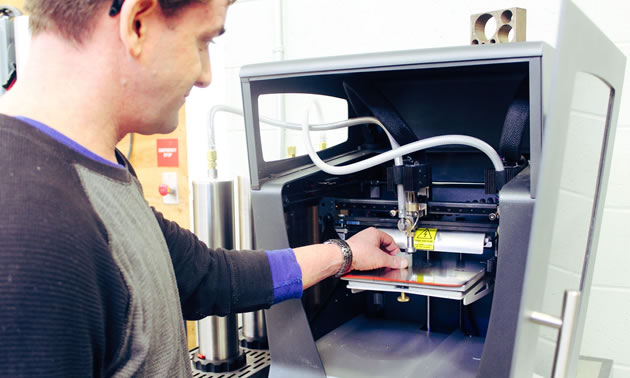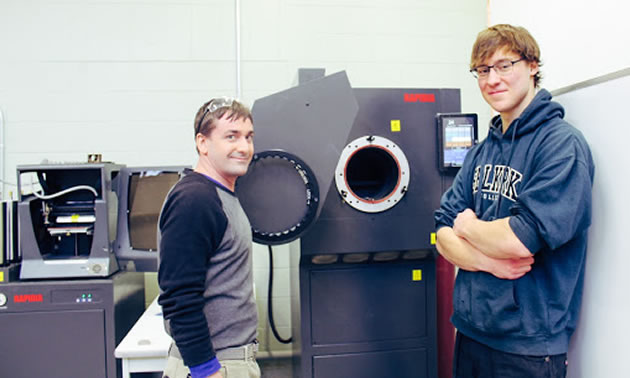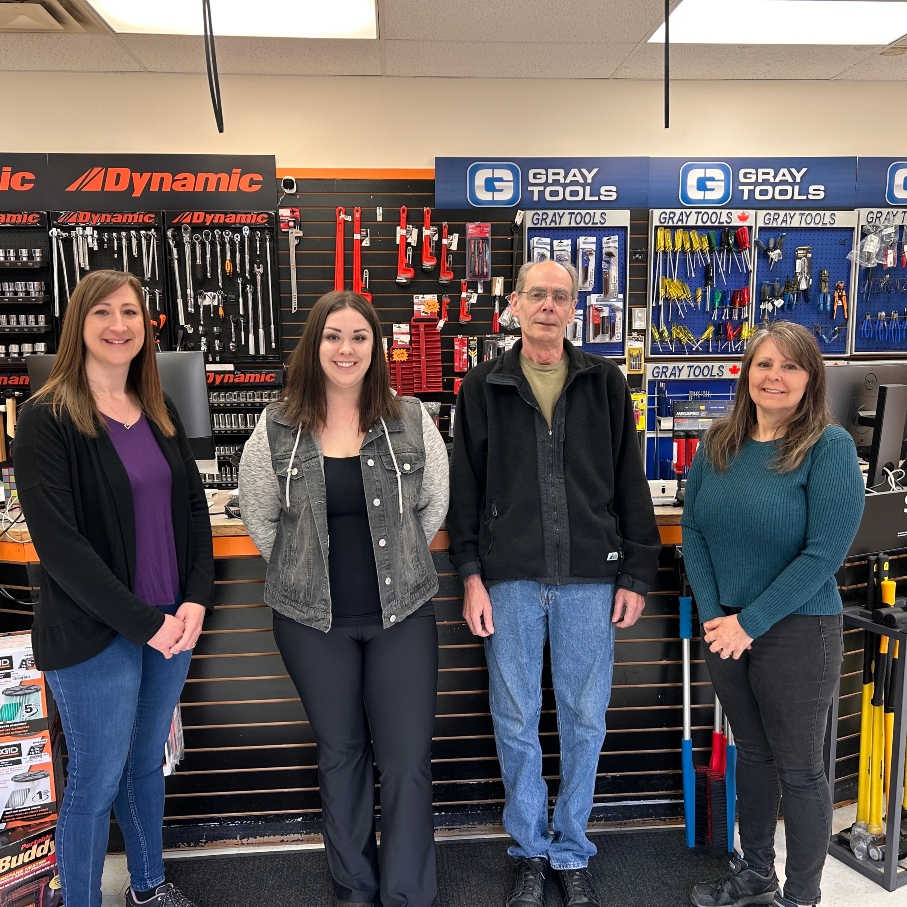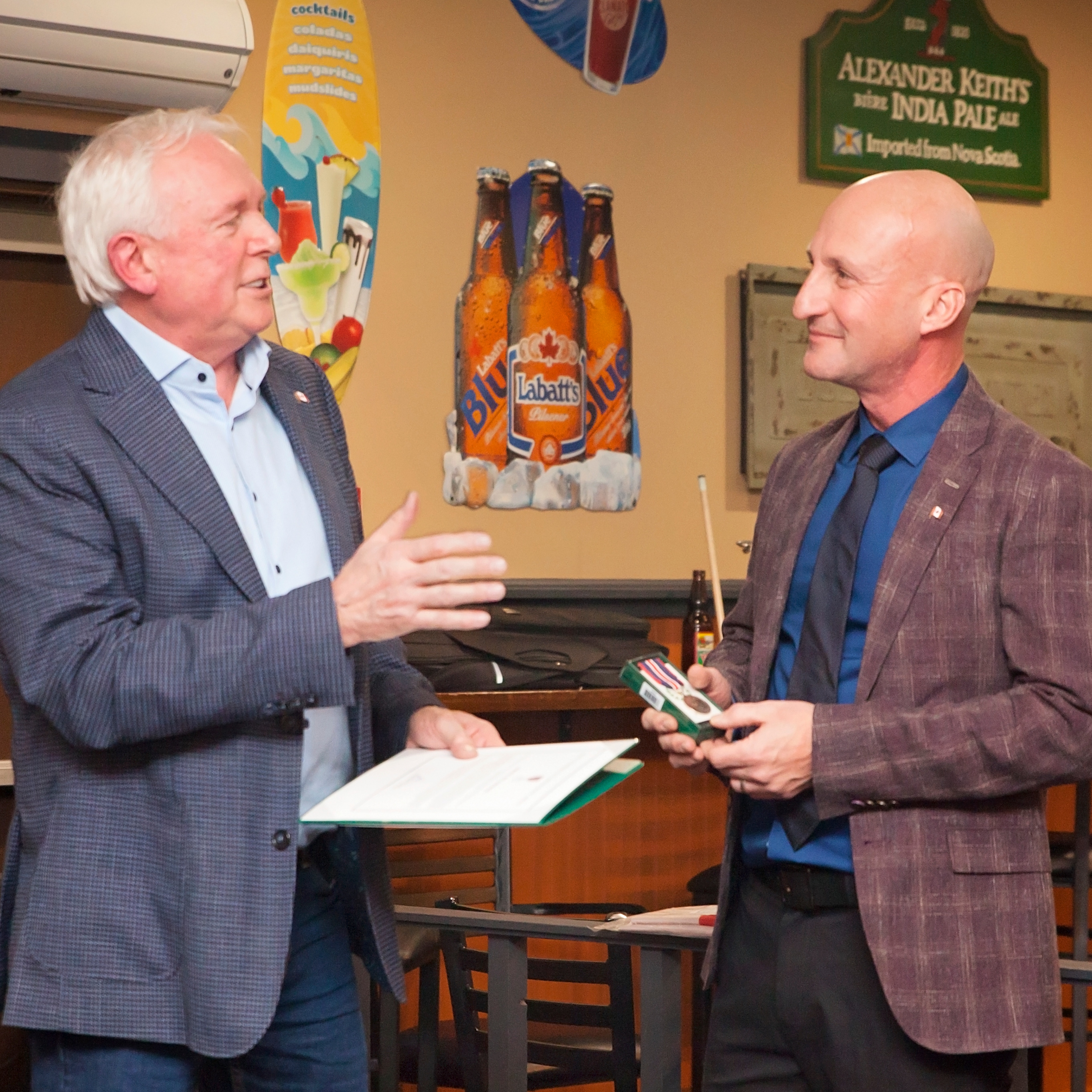First 3D metal printer in rural Canada arrives at MIDAS Lab in Trail
KAST's Midas Lab has made history as the first rural fabrication lab in Canada to house a 3D metal printer

The Rapidia 3D metal printer uses a water-based process, which is the fastest and simplest way to 3D print complex metal parts in just two steps. — Photo courtesy Selkirk College/MIDAS Lab
KAST’s MIDAS Lab just became the first rural fabrication lab in Canada to house a 3D metal printer. It’s big news for the Kootenay region as the benefits of having access to a machine of this kind will be felt throughout every local industry and sector.
The Rapidia 3D Metal printer arrived at MIDAS Lab in Trail, B.C. on January 6, 2020 and is one of five machines to first come off of the assembly line. Having this type of 3D metal printer will enable users to make complex metal parts in a sustainable way.
“Metal printing is a game-changer for fabricating parts and prototypes,” said Executive Director of KAST, Cam Whitehead. “Lower costs and increased speed to produce prototypes means faster innovation and more competitiveness. This all means more jobs and wealth for the region. Our services are available to commercial members, unlike most universities—these machines are so new and expensive that previous focus has been on research and not necessarily business needs.”
3D metal printing can dramatically reduce costs for prototyping by:
● Saving time: no additional tooling or fixturing used in traditional manufacturing.
● Reducing costs by using less material.
● Create complex assemblies without welds, bolts or assembling.
Jason Taylor, Instructor & Applied Researcher at Selkirk College, says it’s taken a lot of research and insight into new ideas to decide on this specific printer.
“While there are printers that can do what the Rapidia can do, we chose this one because of its safe operation, the speed at which you can operate and create the designs and parts that our industry partners and Selkirk College needs,” said Taylor. “All in all, it’s an amazing opportunity.”

This type of 3D metal printer will enable users to make complex metal parts in a sustainable way. — Photo courtesy Selkirk College/MIDAS Lab
In September 2020, Selkirk College will launch Digital Fabrication & Design, a two-year diploma program that trains graduates for advanced manufacturing. Daryl Jolly, School of the Arts chair says the Rapidia 3D metal printer is an exciting new educational tool students will get their hands on.
“As we launch this new program, it’s exciting to again see that Selkirk College students will be trained on and have access to world-class equipment,” Jolly said. “We expect our graduates will be well-positioned to support continued economic growth in our region, bringing value to industry and innovation.”
The Rapidia 3D metal printer uses a water-based process, which is the fastest and simplest way to 3D print complex metal parts in just two steps. The water-based metal paste eliminates the debinding step, enabling the two-stage Rapidia process to produce most parts in under 24 hours. The innovative support system cuts printing time further by avoiding the need to print a metal base plate or most metal supports, saving up to 90 percent of the metal normally wasted on these elements.Using this 3D metal printer, and other machines at MIDAS Lab, means you’re reducing your impact on the environment.
The Rapidia can print a wide range of materials including stainless steel, inconel, tool steel, ceramics and titanium. It can also be used by a broad range of users from ski and bike part manufacturers to the medical industry (inconel and titanium are used in medical tools and machines), to local industry partners like Teck Metals and Spearhead.
“MIDAS Lab is unique in Canada and has been since it opened its doors in 2016,” said Whitehead. “We're thrilled that it's received countrywide recognition and we're using some of the lessons learned to help other startup fabrication labs and innovation centres across B.C. The Kootenays have always been leaders in innovation—it's harder to live in rural communities, which means we're often better at looking for something to make living or working easier.”





Comments